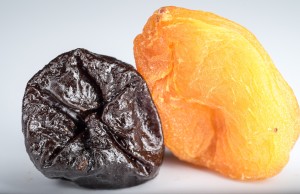
PRUNE JUICE OR FRUITS – NEW YEAR NEW YOU
In my last blog, as I talked about being sick towards the end of last year and today I wanted to talk about something that always happens all the time, after I have been sick.
At the end of any painful crisis episode, I become bloated and constipated. This is something that happens to me all the time after having a severe Sickle Cell crisis. The pains come so quickly but will take its time to leave one’s body; and there are so many after effects of the sickness to deal with, once pain free. Sometimes its the side effects of all the drugs that I have bombarded my body with for such a short period of time. And sometimes its the effects of not eating properly. Needless to say, after the acute crisis, I have other issues to deal with health wise.
One drink that has helped me with the issues of constipation is most certainly prune juice or prune fruits. It is a better and natural laxative than the sugar filled lactulose that will be given to you in hospital or given to you to bring home. I am sure you all know by now, that I always advocate to eat as much naturally good food as we can. Prune juice is not only good as a laxative, it is also a good source of iron.
A prune is the dried version of any type of plum. There are many different types of plums, ranging in color, texture, and taste. They all come from the Prunus family, however, and this is where the name prune comes from. Relatives of the plum include nectarines, peaches, and almonds.
Benefits of Prunes as a fruit or juice:
Improves Digestion
Many people drink prune juice as way to regulate digestion. If you’re constipated or commonly use laxatives, you may benefit from drinking prune juice. Dietary fiber and natural sorbitol found in prunes help to prevent and treat constipation.
Prevents Diseases
Drinking prune juice helps meet your daily requirement for fruit servings. Plant-based foods are an essential part of a healthy diet because they contain vitamins, minerals and antioxidants. According to an article published in the journal “BioFactors” in 2004, prunes are an excellent source of phenols, a type of antioxidant. These compounds help protect your cells from damage caused by harmful free radicals.
Provides Vitamins
Drinking prune juice helps you meet your daily needs for certain vitamins. It’s a good source of vitamins C and K and the B vitamins riboflavin, niacin and B-6. Vitamin C functions as an antioxidant, helps form strong connective tissue and supports your immune function. Your blood’s ability to clot relies on adequate vitamin K levels. B vitamins in prune juice help with energy metabolism, maintain healthy red blood cells and help regulate brain, nervous system and immune function.
Offers Trace Minerals
You’ll also get certain key minerals from drinking prune juice. Iron, which is found in prune juice, is an essential part of the hemoglobin molecule in red blood cells. It’s needed to transport oxygen from your lungs to your cells and helps to prevent anemia. Prune juice is a good source of potassium as well, which helps balance fluids in the body and maintains proper heartbeat, muscle contractions and nerve impulses. Manganese, a trace mineral in prune juice, is needed in tiny amounts by the body and helps with metabolism and bone formation.
High in Vitamins
Prunes are a source of some major nutrients, including: Amino acids, Vitamin A, Vitamin B-complex, Vitamin K, Calcium, Magnesium, Zinc, Copper, Manganese, Selenium and Boron.
Good source of Iron
Anemia occurs when the body doesn’t have enough healthy red blood cells, which iron helps to make. Shortness of breath, irritability, and fatigue are all signs of mild anemia. Prune juice is a great source of iron and can help prevent and treat iron deficiency.
Builds bones and muscles
Dried prunes are an important source of the mineral boron, which can help build strong bones and muscles. It may also help with improving mental acuity and muscle coordination.
Prunes are a rich source of simple sugars. Glucose, fructose, sorbitol, and sucrose are all found within prunes. Because of the natural fibers within the fruit, prunes do not spike the blood sugar as much as the sugars themselves would.
As in all things, do take it in moderation.
www.healthline.com – prune juice
www.medicalnewtoday.com
www.livestrong.com








Hi,, I just got discharged from the hospital after I had a severe SC crisis. I have been taking lots of repository diclofenac to relieve my pain. Plus does it have any side effect
Dear Bolaji, I am so sorry, that I am just replying to your mail; I don’t know how I missed your mail.
Bolaji, all tablets have side effects even paracetamol. Read the affect effects section of diclofenac in the box. What I tend to do is really eat something solid, when taking strong painkillers. I mean beans and not cereal; hope you get my drift. Do stay in touch and if you have any other questions, email me on t.dehinde@yahoo.com.
Take care Bolaji and wishing you well.